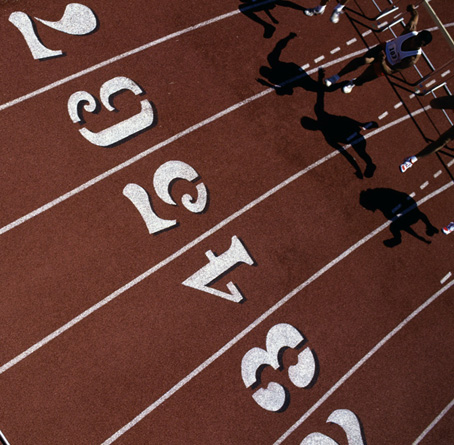The leadership of the international athletics body the IAAF showed flagrant disregard for the rights of clean athletes, according to a report.
The World Anti-Doping Agency (WADA) welcomed the second report issued by WADA’s Independent Commission into doping in international athletics. Specifically, the Report details the Commission’s findings on matters of a criminal nature that were contrary to the World Anti-Doping Code. The Report also explores allegations concerning the “leaked database” belonging to the International Association of Athletics Federations (IAAF), which contains more than 12,000 blood tests from around 5000 athletes in the years 2001 to 2012.
In its findings, the Independent Commission discovered behaviour at the IAAF that began with breaches of anti-doping rules and extended to criminal acts of conspiracy, corruption and bribery within the organization’s leadership. WADA is alarmed that this ultimately allowed doped athletes to evade punishment and sanctioning for a long period of time.
WADA President, Sir Craig Reedie, said: “It is hugely disturbing that individuals at the highest levels of the IAAF were abetting and covering up doping for their own financial gain. This flagrant disregard for the law and anti-doping rules undermines trust amongst clean athletes, and indeed the public, worldwide. Given their criminal nature, the actions of these individuals are now in the hands of the French justice system.”
The report found that individuals at the governing body extorted athletes of money in exchange for covering up doping results — actions that ultimately kept athletes in competition that should have been sanctioned for doping.
Beyond anti-doping, the report contains recommendations on governance and reform, which the authors say that the IAAF should carry out to ensure that safeguards are put in place so that such actions cannot occur. The Commission did not recommend, however, that the IAAF’s actions should lead to a declaration of their non-compliance by WADA. In fact, the report states that the IAAF was among the most active Anti-Doping Organizations in the field.
Reedie said: “I would like to thank the courageous whistle-blowers and investigative journalists who brought this information to WADA; and, in turn, I would like to commend the Independent Commission for its thorough and impactful work of the past year. It is now important that the IAAF, under the leadership of Sebastian Coe, adopts the recommendations of the Report in full. For our part, WADA looks forward to working alongside the IAAF to strengthen its anti-doping activities and regain the confidence of its clean athletes worldwide.”
In examining the leaked database – as first reported by German and British media in August 2015 – the commission confirmed WADA’s view that the database was incomplete; and that, the “suspicious blood values” could not be considered as instances of doping. In November 2015, the Independent Commission (IC) Report Part One was released summarising the IC findings and recommendations. The IC’s mandate was extended by WADA in August 2015 following the release of the documentary titled ‘Doping – Top Secret: The Shadowy World of Athletics’, which contained new allegations regarding widespread doping in international athletics. The documentary alleged that ARD and The Sunday Times had obtained a leaked database, belonging to the International Association of Athletics Federations (IAAF), which contained more than 12,000 blood tests from around 5,000 athletes in the years 2001 to 2012.
Lord Coe comment
IAAF President Sebastian Coe said: “I am extremely grateful to the WADA Independent Commission for its work and for the recommendations it has made. The corruption that it has revealed is totally abhorrent, and a gross betrayal of trust by those involved. Even though each of the impacted doping cases was eventually resolved with lengthy bans for the athletes involved, I recognise that the IAAF still has an enormous task ahead of it to restore public confidence. We cannot change the past, but I am determined that we will learn from it and will not repeat its mistakes. Some of the measures recommended by the Independent Commission already feature in the governance reform programme that I announced on January 5 but we will now urgently consider all of the new recommendations and will incorporate them quickly into that reform programme.”
View also the Transparency International web page with Richard Pound.









